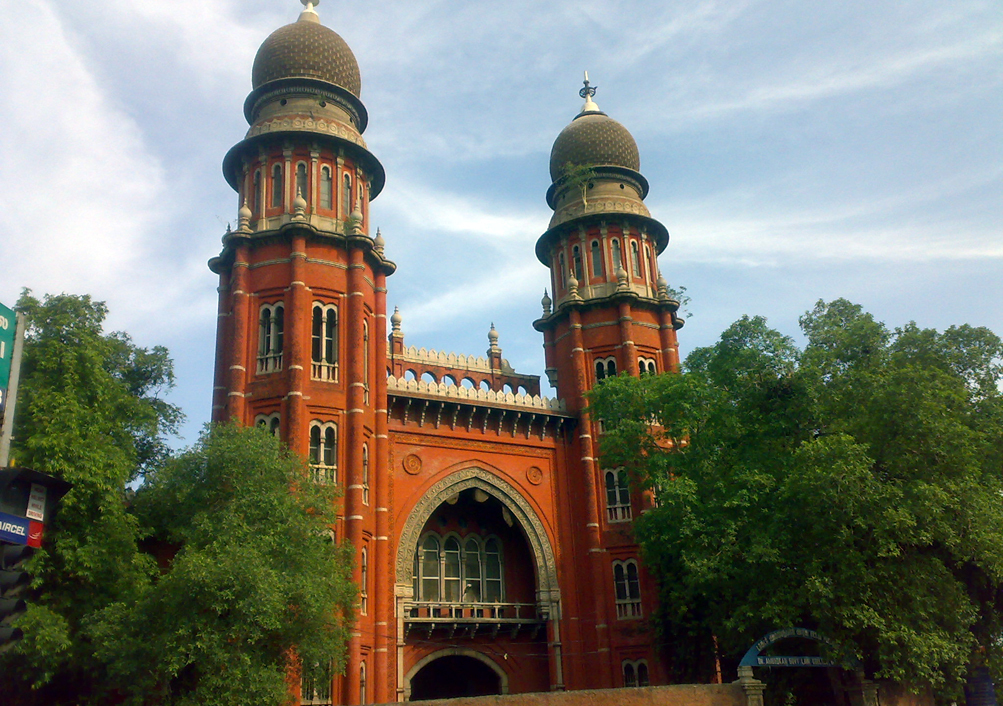In W.P.(MD) No.15763 of 2021-MAD HC-Courts can interfere if any order of transfer is passed without jurisdiction, where allegations of mala fides are raised or when such transfer is punitive: Madras HC Justice S.M.Subramaniam [12-04-2022]

Read Order: B. JEYABALAN Vs, THE DISTRICT COLLECTOR COLLECTORATE COMPLEX DINDIGUL AND ORS.
Mansimran Kaur
Chennai, April 18, 2022: Holding that Courts are not expected to interfere with the day-to-day administration of the Government departments, the Madurai Bench of the Madras High Court has opined that in exceptional circumstances, the Court can entertain writ petitions, where an order of transfer is under challenge on certain limited grounds.
The Bench of Justice S.M.Subramaniam was hearing a petition filed for assailing the transfer order dated July 22,2020 issued by the second respondent transferring the petitioner from Eluvanampatti to Kottaipatti.
Brief facts of the case were that the petitioner was working as Panchayat Secretary in Eluvanampatti Village, which is very near to his residence. The petitioner stated that he sustained certain injuries in an accident that occurred on December 31, 20202 and he was undergoing treatment. Pursuant to the same, the order of administrative transfer was under challenge. Moreover as per the affidavit filed by the petitioner, a criminal case was also registered against him in respect of the accident. Therefore, the petitioner prayed that he could work nearer to his residence and therefore, he need not be transferred.
The Court observed that the very claim of the petitioner was absurd and couldnot be accepted by this Court. It was further added that a public servant filing an affidavit that he should be allowed to work nearby to his house is unacceptable. Furthermore, it was revealed by the impugned order of transfer that the Block Development Officer within the Panchayat effected administrative transfer in the interest of the public. Since, the order itself categorically stated that on administrative grounds, transfer was effected,the same could nor be assailed by the petitioner. Moreover, the petitioner was transferred from Eluvanampatti to Kottaipatti, which was also a nearby Village. Therefore, the petitioner was not entitled for the relief as such sought for in this writ petition, the Court observed.
The Court noted that the second respondent, in his counter affidavit, had stated that the petitioner was continuously working as Secretary of Eluvanampatti Village Panchayat from September 1, 2007. It was noted that the petitioner was working for 14 years on the same post and the impugned order of transfer on administrative grounds called for no challenge, the Court remarked.
The Court further assessed power of transfer conferred on the Government under Section 48 of the Tamil Nadu Government Servants the Act, 2016 and noted that the same is absolute. It was further added that a simple reading of sub-section (3) prescribes that on administrative grounds, the Government, notwithstanding the provisions of the Act or any special rules or adhoc rules, may issue orders of transfer on administrative grounds.
It was further submitted that the transfers are issued on administrative grounds for efficient and effective public administration. Efficient public administration is the constitutional mandate and under those circumstances, the act came into existence to provide an absolute power to the Government to transfer an employee from one revenue district to another revenue district on administrative grounds notwithstanding anything contained in the act or any special rules or adhoc rules.
Thus, this Court was of the considered opinion that the administrative power of the Governments is possessed by the Government itself in order to administer the administration effectively by the competent authorities. The Government should act independently without any intervention of the Courts. It was also stated that in exceptional circumstances, the Court can entertain writ petitions, where an order of transfer is under challenge on certain limited grounds.
The Bench said,”If any order of transfer has been passed without jurisdiction or allegations of mala fides are raised or in certain exceptional circumstances, where materials are available to establish that the transfer is punitive, then the Courts can interfere, in order to mitigate the exceptional circumstances advanced. However, the scope of interference is undoubtedly limited and in the event of frequent interference by the Constitutional Courts in the matter of administrative transfer, the executives may not be in a position to run the administration in a smooth manner.”
The next proposition was pertaining to the issue if whether transfer gives a right to a government employee. The answer to this was that the transfer does not provide any right to a Government employee. It was further observed that indeed at the time of acceptance of the employment, the employee gives his implied acceptance to the transfers during the course of the employment.
The Court was of the view that administrative reasons are wide in nature with confined scope of interference. It was further added that if the Government employees were given an opportunity to select their place and post in a particular manner, the same shall vitiate the administrative discipline. Lastly,it was observed that administrative reasons are passed keeping in view several reasons for the effective administration, thus intervention of the Court shall be highly limited to not cause disruption in the smooth functioning of the administration.
Sign up for our weekly newsletter to stay up to date on our product, events featured blog, special offer and all of the exciting things that take place here at Legitquest.




Add a Comment